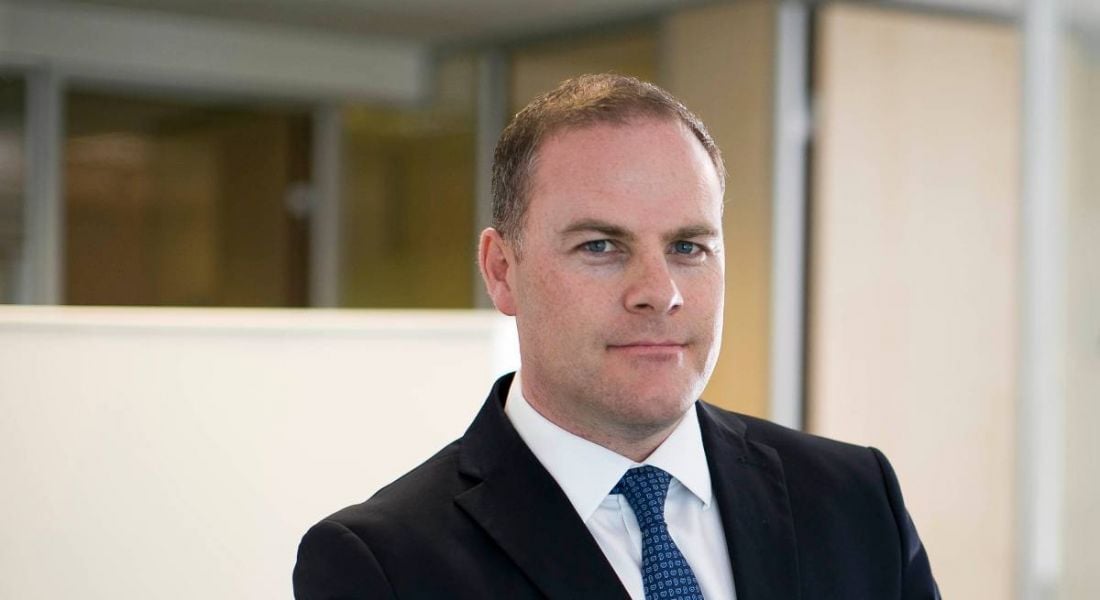What’s it like working in the telecoms industry? Peter Hendrick, CTO of Enet, filled us in on what a typical day is like for him, offering some key productivity tips.
Earlier this year, Enet announced a partnership with Siro to allow the company to gain access to the latter’s growing number of 1Gbps connections across the country.
But what’s it like working in the telecoms industry? What type of projects does one work on? Peter Hendrick, CTO of Enet, may be able to shed some light on this.
What is your role within Enet?
I’m CTO at Enet.
If there is such a thing, can you describe a typical day in the job?
I’m not sure that there is a typical day but I tend to think of my role from a few different perspectives. Firstly, I have to direct Enet’s technical strategy – based around engineering, platform, vendor choices – and ensure that it’s fit for purpose for our corporate objectives.
Secondly, as the company is constantly growing, so too is our team. For me, the hiring decision is the most critical decision that any company makes and I place huge emphasis on finding the right people.
Thirdly, I communicate with the team. It sounds simple, but it’s often overlooked. I think it’s vital to explain where we want to go as a business and how we intend to get there. Only then can we make sure that everyone understands how they fit in and how they can contribute.
What types of project do you work on?
At the minute, I’m directing a large project around Enet’s participation in a State intervention in the telecoms market. This is a strategic role leading a team of experts across commercial, financial, legal as well as technical work streams.
Also, there’s an interesting project creating an automated BSS/OSS wholesale aggregation platform. The company has been developing a cloud-based, secure and scalable software to support large, small and specialist service providers across both wholesale and retail services, over a range of different network and access technologies.
It’s an impressive tool that’s capable of efficiently combining qualification, provisioning, billing, ticketing as well as life-cycle management, and it has been an exciting project to be involved in.
What skills do you use on a daily basis?
To some degree, I have stopped thinking about my career functionally and, while I’ll always be an engineer, the reality is that I’m a manager – managing objectives and budgets, navigating decision-making and achieving outcomes via colleagues.
What is the hardest part of your working day?
I genuinely try to limit my time on email.
Overall, I find it an ineffective way to communicate and would argue that spending time on email makes you unproductive. I tend to prefer platforms that are instant and can make online interactions more like conversations rather than correspondences. Having said that, there is no substitute for face-to-face interactions.
Do you have any productivity tips that help you through the working day?
It’s surprisingly common how many people think success comes from being busy. I try to remember that being busy is not an objective. Instead, I focus on delivering objectives. Always try to be clear on what you want to achieve. Only then you can share your vision with your team.
Oh, and get off email!
When you first started this job, what were you most surprised to learn was important in the role?
It’s all about people! Since Enet operates in the world of telecommunications, there’s a tendency to think that it’s all about the technology but for me, it’s all about enabling colleagues to deliver on our shared strategy.
At Enet, we have built a team that we believe is the best and it’s no coincidence that we have built a very successful business based around that team.
How has this role changed as this sector has grown and evolved?
Up to 15 years ago, service providers had proprietary networks and made their products and services available over their own infrastructure. This is no longer the case. Nowadays, significant amounts of data are trafficking on third-party networks. So, along with the fact that consumers and businesses are moving toward the cloud, we see an increasing demand for scale and flexibility.
As a company, we see opportunities in this and our corporate ambition is always to say ‘yes’ to our customers’ requirements. In terms of my role, that commercial flexibility then must translate into technology. In Enet, we have built systems and processes in engineering, service delivery and network operations that enable the concept of ‘yes’, and the team works hard to ensure that the high levels of flexibility are backed up by rigorous testing, short lead times and high-touch customer service management.
What do you enjoy most about the job?
For me, it’s always about the next big challenge. The team at Enet sees potential in our model and believes there is a business of real scale here – potentially to double in size in three to four years, as well as going international. The enjoyment comes from putting us on an upwards trajectory towards that goal.
Right now, there are several opportunities and projects already in motion to help get us there. For example, real opportunities exist in exploiting the need for increased State intervention in telecommunications infrastructure.
On an international basis, this is driven by the criticality of communications infrastructure but also, crucially, the weakness of the private-sector business case. We feel Enet is perfectly positioned to support and grow through further State interventions in the market, nationally and internationally.




